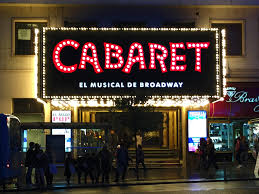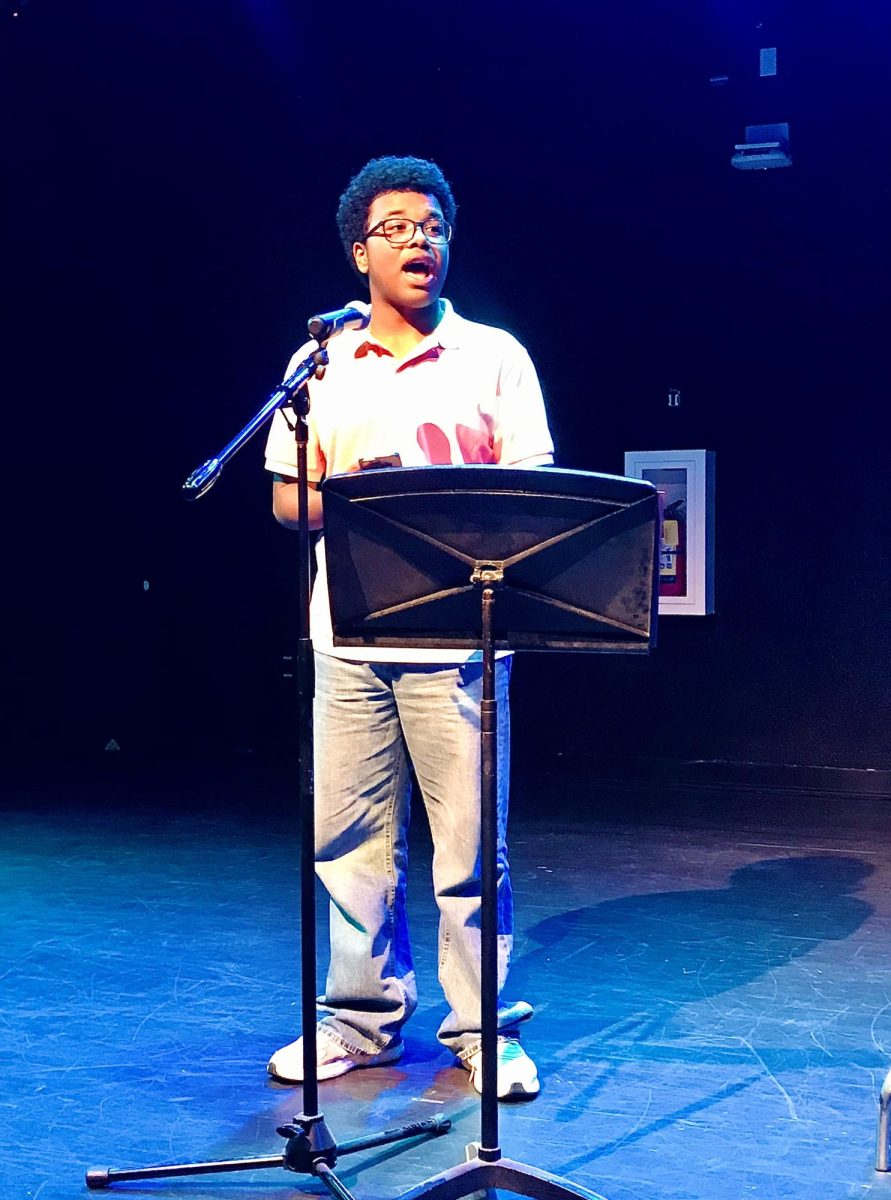A showing of the first song, Wilkomen/ Don’t tell Mama, was presented at the 2024 Tony awards, played by Eddie Redmayne. Audiences were confused at the unsettling tone of the performance. The tone was, unknowingly to them, intentional.
The tone of the actual play is the same. Jovial, yet undoubtedly having a most disturbing tone. But what is Cabaret even about?
According to Douglas Reside, Billy Rose Theatre Division, Lewis and Dorothy Cullman Curator, writers for New York Public Library, the musical is “not only about the hedonism and antisemitism of Berlin in the interwar period, but also about the United States in the mid-1960s.”
The story is based off of the book “Goodbye to Berlin”, by Anglo-American writer Christopher Isherwood about his time in Berlin Germany during the slow rise if the Nazi Party.
It starts with a performance that welcomes the audience to the “Kit Kat Club”, a cabaret adjacent to a nightclub. The night club serves as a place where people can “forget their troubles” as said in the song. The performance is done by a character that’s called Emcee, though his name is not directly stated in the musical. Throughout the musical, this character lurks in the background of songs, at times continue off of other characters’ songs with a song that doesn’t seem “quite right”, and has his own songs, the most blatant one warning people about what is really going on in the background of the musical, the rise of the Nazi party, being “If you could see her”.
It’s also the place where Cliff, an American author who goes to Berlin Germany, meets Sally. Despite Sally having been someone who gets involved with men for a limited time and leaves, Cliff, convinces himself and her to start a family. The elder owner of the hotel he stays in, Fraulein Schneider, falls for a man who gives her fruit, a rarer commodity at the time than it is today.
The second part of the play takes a turn
At the engagement party of Fraulein Schneider and Herr Schultz, the character Ernst Ludwig, who had met Cliff on the train and is implicitly shown to have relations with him. When he arrives, after his coat is taken it’s revealed that he’s a nazi by the armband he wears. We found out when he dances with Fraulein Kost that she is of the same mindset. Though at no point in the story does she explicitly say it, she does say “The Jews have all the money, you know?”
Ernst then leaves after telling Fraulein Schneider that Herr Schultz is not a real German because he’s Jewish. Shortly after, Fraulein Schultz tells Cliff and Sally she’s decided to take back their engagement, due to the risk of, the Nazi party rising and taking away her license to give people room to rent due to her being married to a Jewish man, which is how she makes her livelihood. This is despite the love shown between them and Herr’s claim that it’ll be fine and that the Nazi party will die down.
After this several things happen, these being the most significant.
Cliff talks to Herr, who says that he knows the party will blow over because he is a German, and he knows how the Germans think. Sally gets an abortion and decides to stay working at the KitKat Club.
Cliff goes to the club to try to get Sally back but gets beat up by Ernst and other who agree with him. Right before the fight, there’s a disagreement between them about the political party, with Ernst saying “You’s understand if you were a German.” Right before the fight, there’s a disagreement between them about the political party, with Ernst saying “You’s understand if you were a German.”
After, Cliff leaves the country.
The onstage play ends differently than the movie. The stage one ends with the emcee taking off his coat and revealing stripped pajamas. The movie instead ends with a blurry scene that transfers to an audience full of Nazis.
Though different, both convey the same message. When you ignore problems, when you ignore the rise political parties dangerous in their beliefs being in charge, they don’t go away, they get stronger. Wait too long, and it’ll be too late to do anything.







